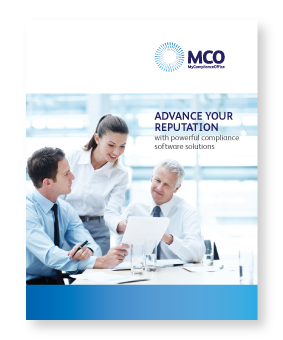Q&A
You can download a full copy of the slides from this webinar.
Full video transcript available below:
Hello and thank you for joining today's webinar Best Practices to Master an SEC Exam. Our presenters today join us from Northpoint Compliance, Victoria Hogan and Colleen Montemarano.
|
So the first question we have here is, "Where could we find a sample request list related to a particular type of firm, for example, fund to funds?"
|
|
I would say you Google. A lot of times you will find that they get out there on the internet. Or if you subscribe to a compliance publication, sometimes they will share copies of requests lists that advisers have received and they got permission to share.
|
|
There's great organizations out there, industry rags and different adviser organizations, but I know like the NSCP is one. I'm sure you will be able to find a request list there. Regulatory compliance is another one. Going to different conferences they will often circulate them. Also, just speaking to your peers, as well. SEC round table groups form all the time, so seeing a similar investment advisers they actually did have a SEC exam recently. [inaudible 00:55:55] SEC document request list. I find that when advisers do get a request list, they don't mind sharing it with folks, their other investment advisers too.
|
|
And Colleen [inaudible 00:56:12]. I don't think it be too hard to find for us to find an SEC request list.
|
|
Okay, another question here is, "What kind of ADV part 2A disclosure would be appropriate for investment adviser reps, including mutual funds, ETFs within fee based brokerage accounts?" |
|
What kind of disclosure is they are ... I'm thinking if they're receiving commissions on mutual funds and ETFs within a fee-based account you want to be sure that the conflict of interest to recommend one product over another and has higher commission is disclosed, of course the inherent conflict of interest of just receiving commissions, you want to see fully disclosed, like Vicky said earlier, in your 2A. We also recommend you put it right in your investment advisory agreement. |
|
Yeah, and if you actually the directions to the ADV part 2, do, I think, a pretty good job of pulling out a situation where the adviser or an employee receives compensation for the selling of an investment product. There are listings of disclosures that you're required to have in your form ADV part 2, and I think the SEC did a pretty good job of going through. If you look at that part 2 instructions of what exactly should then be disclosing that by recommending a product, you have an inherent conflict of interest and the fee that you pay is not just your advisory fee, but also there's these embedded fees and that we might receive a portion of those embedded fees. And therefore, there's a conflict of interest and then go on to describe how do you manage that conflict of interest, which could be a monthly review to make sure that there has been no turning for example. You don't have to be that specific, but that would certainly would be a test that you should do, and then disclose that there's compliance oversight of the product that's recommended.
|
|
Okay, and given most firms receive electronic fees, we only receive brokers transactions and those fees don't include cash movements, so would you suggest that we obtain this data?
|
|
So, you get electronic fees but you cannot ... I guess I had a lot of questions for the person, but I don't know how ... I guess without knowing how money is managed, I think that you would want to see if there will be considerably large money movements in around an account. Like, for example, if there was large money movements at an account, you would need to liquidate some securities too so that the cash would be available to be moved. |
|
I would think you need to be aware because if you're not aware of cash movements it could result in a trader, for example, if you go to purchase this security and you felt there was available cash in the account and the cash has been moved, you're going to end up with an error in the account. So, I would think it's important ... I think in talking to most clients, I believe they receive fees, but if they don't often too a client will contact the advisers to make them aware of cash movements, especially so they can liquidate things if necessary, like Vicky had mentioned.
|
|
It's hard for us to blanket, make a recommendation not understanding this particular person's question, capabilities, possibilities for them for obtaining this information. I imagine it would be a [inaudible 01:00:53] statement. I don't know if this adviser rather has a [inaudible 01:00:57] management system, but having worked with operations, if you have an operations' department team to try to get that information. But you know, if that doesn't answer the question, if they want to reach out to us, we're happy to go ahead and answer the question more fully with more information. |
|
This webinar was co-hosted with Victoria Hogan and Colleen Montemarano of NorthPointCompliance.com |


